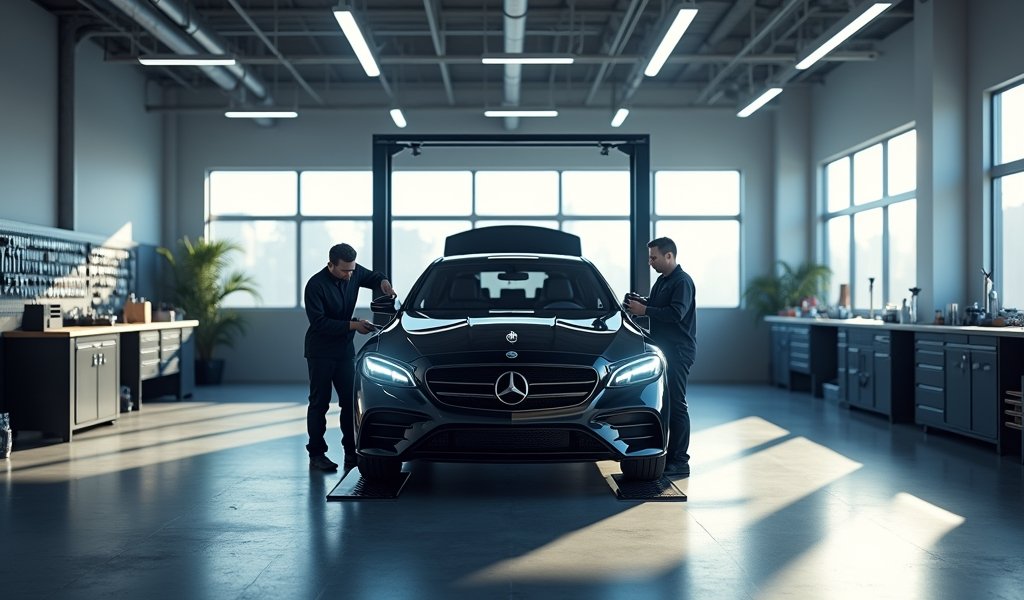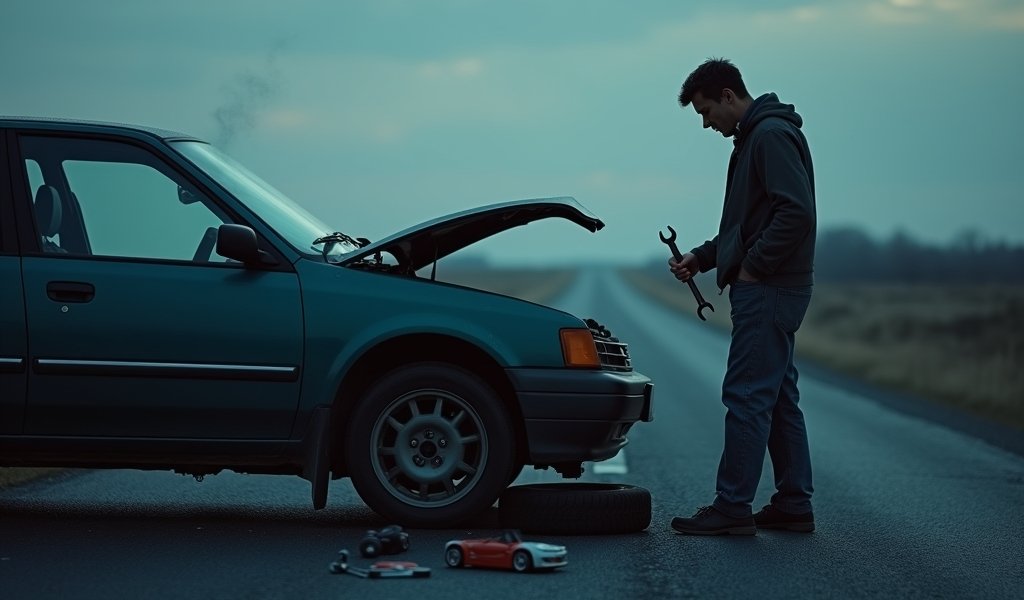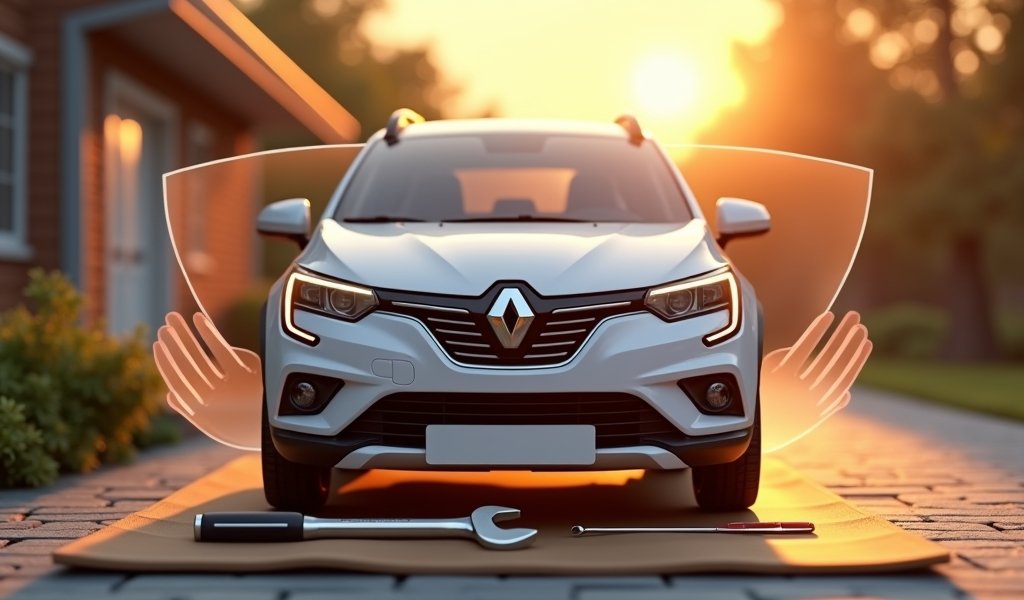Overview
This article explains five practical approaches to obtaining car insurance without a driver’s license, including naming a licensed driver as the primary operator, exploring non-owner policies, considering parked car insurance, shopping with specialized insurers, and maintaining honesty throughout the process. It emphasizes that while insurance without a license is possible for legitimate reasons like vehicle ownership during license suspension or purchasing cars for others, it’s essential to understand the legal considerations and never use insurance as justification for unlicensed driving.
Table of Contents
- Understanding Car Insurance Without License
- Why You Might Need Insurance Without a License
- Tip 1: Name a Licensed Driver as Primary Operator
- Tip 2: Explore Non-Owner Car Insurance Policies
- Tip 3: Consider Parked Car or Storage Insurance
- Tip 4: Shop Around for Specialized Insurers
- Tip 5: Be Honest with Insurance Providers
- Legal Considerations and Risks
- Conclusion
- Frequently Asked Questions
Understanding Car Insurance Without License
Navigating car insurance without a license might seem like trying to change your oil without a drain pan – messy and complicated. But I’m here to tell you it’s not impossible. Car insurance without license is a situation many folks find themselves in for various legitimate reasons. Whether your license is temporarily suspended, you own a vehicle you don’t drive, or you’re purchasing a car for someone else, there are practical solutions available.
As someone who’s spent over 20 years in the auto insurance industry, I’ve guided countless individuals through this exact scenario. The trick isn’t finding loopholes – it’s understanding how insurance companies view risk and working within the system honestly.
Many assume insurance and licensing go hand in hand, but they’re actually separate requirements with different purposes. Your license proves you can drive, while insurance protects against financial loss. This distinction is what creates the opportunity to compare car insurance quotes online even without holding a valid driver’s license.
Why You Might Need Insurance Without a License
Before diving into solutions, let’s explore why you might be in this situation. Understanding your specific circumstances helps determine which approach makes the most sense for your situation.
Perhaps you’ve had your license suspended or revoked, but still own a vehicle. Maybe you’re a car collector who stores vehicles rather than drives them. Some folks purchase cars for family members while maintaining the insurance in their name. Others might be in the process of getting their license but want to purchase a car in advance.
Each scenario is valid and more common than you might think. According to a study by the Insurance Information Institute, approximately 4% of insured vehicles are owned by someone without an active license – that’s millions of cases nationwide.
Whatever your reason, know that you’re not alone, and there are legitimate ways to address your insurance needs. The key is transparency and finding the right approach for your specific situation.

Tip 1: Name a Licensed Driver as Primary Operator
One of the most straightforward approaches is to name someone else – someone with a valid driver’s license – as the primary operator of your vehicle. This person could be a spouse, adult child, relative, or even a trusted friend who regularly drives the car.
Here’s how to make this work effectively:
- Choose someone who actually drives the vehicle regularly
- Ensure they have a clean driving record (this affects your rates)
- List yourself as the owner on the policy but not as a driver
- Be prepared to explain this arrangement to your insurance company
This approach works particularly well for households where one person might not have a license but needs to maintain ownership of the vehicle for various reasons. Insurance companies understand this arrangement and many have specific protocols for handling it.
Tom, a client of mine, had his license suspended for medical reasons. We listed his wife as the primary driver while maintaining his ownership of their family sedan. The insurance company was completely comfortable with this arrangement after we explained the situation clearly.
Remember, though – this approach doesn’t give you permission to drive. The vehicle is insured for the named drivers only, and you’d still be breaking the law if you drove without a license. The National Highway Traffic Safety Administration is quite clear that driving without a valid license can result in serious penalties.
Tip 2: Explore Non-Owner Car Insurance Policies
Non-owner car insurance might sound like a contradiction, but it’s a specialized policy designed for people who don’t own vehicles but occasionally drive. While this typically requires a license, some insurers offer modified versions of these policies that can work in unique situations.
This approach is particularly useful if:
- You’re working toward reinstating your license
- You need to maintain continuous insurance coverage
- You occasionally rent vehicles (with a licensed driver present)
The beauty of non-owner policies is their flexibility. They typically provide liability coverage without being tied to a specific vehicle. This means you’re maintaining your insurance history – something that can save you money once you get your license reinstated.
When exploring non-owner policies, be upfront with insurance providers about your license status. Ask specifically about SR-22 options if your license was suspended due to violations, as this filing proves you have the minimum required insurance and can help with reinstatement.
I’ve seen non-owner policies reduce premiums by up to 15% compared to standard policies for clients in transitional periods. It’s worth investigating as part of your understanding of car insurance options when you’re in an unusual situation.
Tip 3: Consider Parked Car or Storage Insurance
If your vehicle will primarily be parked – perhaps you’re saving it for when you get your license reinstated, or it’s a collector’s item – parked car insurance (sometimes called storage insurance) might be your best option.
This specialized coverage typically includes:
- Comprehensive coverage (protecting against theft, vandalism, weather damage)
- No liability or collision coverage (since the car won’t be driven)
- Significantly lower premiums than standard policies
Sarah, a classic car collector who never actually drives her vehicles, saved nearly 70% on her insurance costs by switching to proper storage policies. She maintains ownership and protection while acknowledging these vehicles won’t be operated on public roads.
The key advantage here is that insurance companies don’t typically require a valid license for parked car policies since there’s no expectation of driving. However, be aware that this means your vehicle cannot legally be driven at all – even by licensed drivers – unless you switch back to a full policy.
When setting up this coverage, be specific about where the vehicle will be stored. Secure locations like private garages often qualify for additional discounts. Some companies even offer monitoring systems that can further reduce premiums while ensuring your vehicle remains safely parked.

Tip 4: Shop Around for Specialized Insurers
Not all insurance companies have the same policies regarding licensure. Some specialized insurers or smaller regional companies may offer more flexibility than major national brands. The key is to broaden your search beyond the companies with the biggest advertising budgets.
When shopping for specialized coverage:
- Contact independent insurance agents who work with multiple companies
- Specifically ask about their experience with unlicensed owner situations
- Inquire about high-risk pools or specialized programs
- Don’t be discouraged by initial rejections – keep looking
I’ve found that smaller, regional insurance providers often have more flexibility in their underwriting guidelines. They might be willing to work with you on a case-by-case basis, especially if you have a clear explanation for your situation and can demonstrate you’re not personally driving the vehicle.
Mark, a client with a suspended license, was rejected by five major insurers before we found a regional company that specialized in challenging cases. They offered a policy that listed his adult son as the primary driver while acknowledging Mark’s ownership – at rates only 20% higher than standard coverage.
Don’t limit yourself to online quotes when in unique situations like this. Direct conversations with agents can uncover options that automated systems might miss. This is where understanding car insurance pricing factors can really pay off in finding the right match for your situation.
Tip 5: Be Honest with Insurance Providers
This might seem obvious, but it’s worth emphasizing: honesty is non-negotiable when securing car insurance without a license. Attempting to hide your license status is considered insurance fraud and can lead to denied claims, policy cancellation, and even legal consequences.
Here’s how to approach conversations with insurers:
- Be upfront about your license status from the beginning
- Clearly explain why you need insurance (vehicle protection, family needs, etc.)
- Provide details about who will actually be driving the vehicle
- Ask specific questions about their policies for your situation
In my experience, insurance representatives appreciate straightforward conversations. When you’re honest, they can direct you to appropriate options rather than wasting time on policies that won’t work for your situation.
Many companies have specific protocols for handling unlicensed owner situations, but they can only help if they know what you need. I’ve seen countless clients find workable solutions simply by being transparent about their circumstances from the start.
Remember, insurance is fundamentally about trust. Building that relationship on a foundation of honesty serves everyone’s interests in the long run.
Legal Considerations and Risks
While obtaining insurance without a license is possible, there are important legal considerations to keep in mind. These vary by state but generally fall into a few categories:
- Vehicle registration requirements (some states require a valid license)
- Potential requirements for SR-22 filings after license suspension
- Restrictions on who can legally drive your vehicle
- Legal liability if unlicensed driving occurs
It’s crucial to understand that having insurance doesn’t make it legal to drive without a license. These are separate requirements, and violating driver’s license laws can result in serious penalties, including fines, extended suspensions, and even vehicle impoundment or jail time for repeat offenders.
Some states have implemented electronic verification systems that cross-reference insurance and licensing databases. According to research from the Insurance Institute for Highway Safety, these systems have increased compliance with both insurance and licensing requirements.
I always advise clients to consult with a legal professional familiar with their state’s specific requirements. The small cost of a consultation can prevent much larger problems down the road. While I can help with insurance matters, understanding the legal landscape requires specialized expertise.
Conclusion
Securing car insurance without a license presents challenges, but it’s far from impossible. By understanding the options available – from naming licensed primary drivers to exploring specialized policies like parked car coverage – you can protect your vehicle while respecting legal requirements.
Remember that transparency is essential throughout this process. Insurance companies aren’t your adversaries; they simply need to understand and properly categorize your risk. Being honest about your situation allows them to offer appropriate solutions rather than inappropriate products.
As you navigate this process, keep your long-term goals in mind. For many, insurance without a license is a temporary need during license reinstatement or a specific life circumstance. Making responsible choices now helps ensure a smoother transition back to standard coverage when your situation changes.
With the right approach and realistic expectations, you can find insurance solutions that protect your assets without encouraging illegal driving. The peace of mind that comes with proper coverage is worth the extra effort required to secure these specialized policies.
Frequently Asked Questions
Can I register a car without a driver’s license?
Registration requirements vary by state. Some states allow vehicle registration without a license, while others require at least a state ID or have additional requirements.
Will my rates be higher for car insurance without a license?
Generally, yes. Insurance for vehicles with unlicensed owners typically costs 10-30% more than standard policies due to perceived increased risk.
Can I get my license back faster if I maintain insurance coverage?
In many states, maintaining continuous insurance coverage and/or filing an SR-22 is required for license reinstatement. It demonstrates financial responsibility to the state.
What happens if someone drives my car without a license?
Insurance typically follows the car, not the driver. However, if someone drives without a license, the insurer may deny claims and the driver faces serious legal penalties.
Can I be listed as an excluded driver on my own policy?
Yes, many insurance companies allow this arrangement. You would be the policyholder and owner but explicitly excluded from driving coverage.

